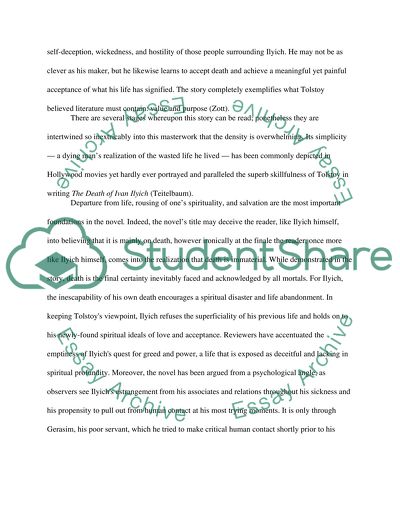Cite this document
(“The Death of Ivan Ilyich by Leo Tolstoy Book Report/Review”, n.d.)
Retrieved from https://studentshare.org/sociology/1446395-the-death-of-ivan-ilyich-by-leo-tolstoy
Retrieved from https://studentshare.org/sociology/1446395-the-death-of-ivan-ilyich-by-leo-tolstoy
(The Death of Ivan Ilyich by Leo Tolstoy Book Report/Review)
https://studentshare.org/sociology/1446395-the-death-of-ivan-ilyich-by-leo-tolstoy.
https://studentshare.org/sociology/1446395-the-death-of-ivan-ilyich-by-leo-tolstoy.
“The Death of Ivan Ilyich by Leo Tolstoy Book Report/Review”, n.d. https://studentshare.org/sociology/1446395-the-death-of-ivan-ilyich-by-leo-tolstoy.


